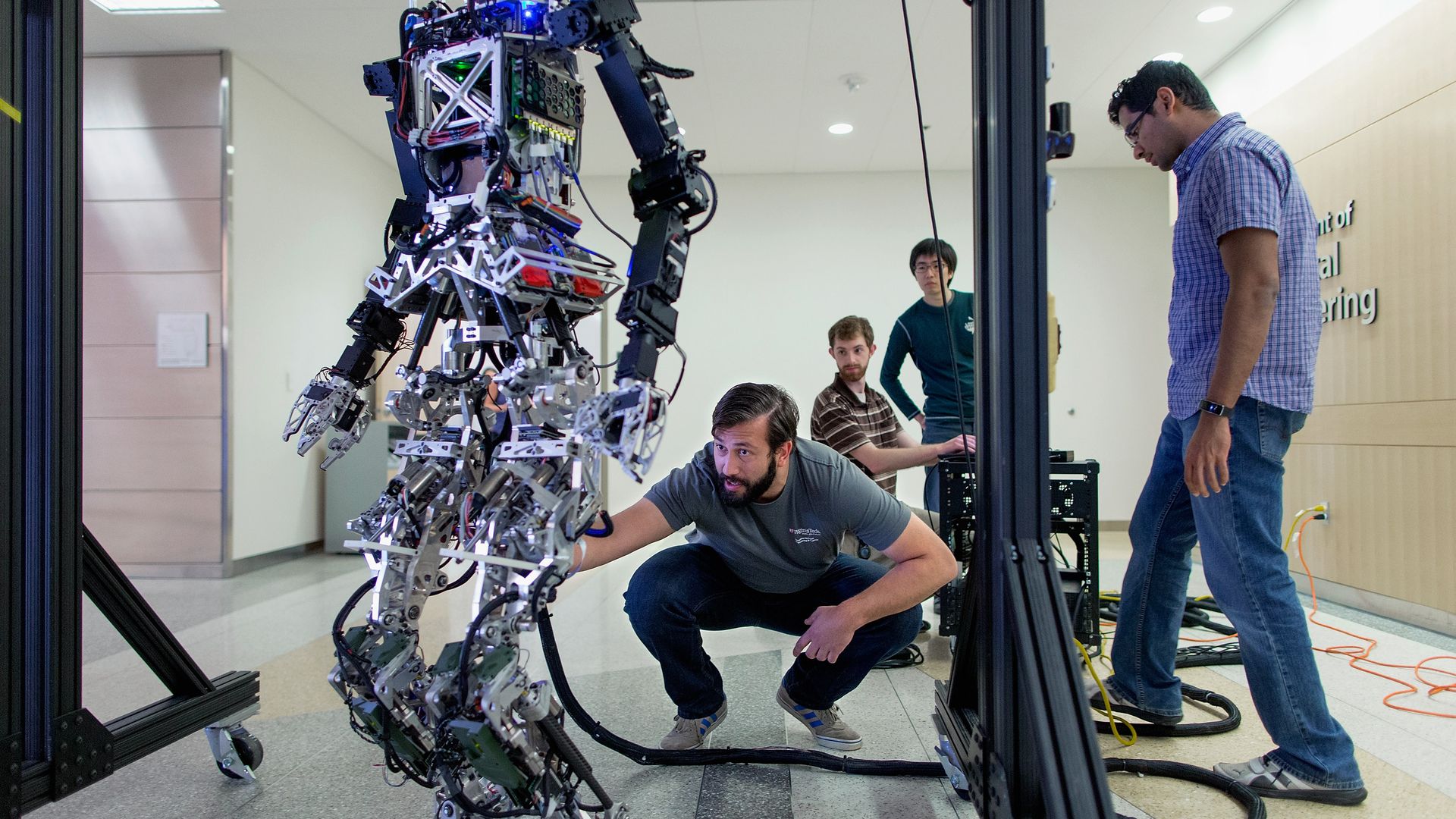A threat to American AI talent
Add Axios as your preferred source to
see more of our stories on Google.

Photo: Chip Somodevilla/Getty
International students outnumber homegrown talent two to one among newly graduated AI experts, driving American leadership in the critical and increasingly crowded field.
Why it matters: Experts worry that U.S. hostility to immigration is choking this vital pipeline, potentially handing an advantage to competitors like China.
The big picture: Bright minds are the primary fuel for AI advances.
- Experts attribute America's primacy in large part to its ability to attract the world's top talent, train them in top universities, and then employ them in academia or the booming private sector.
- But as other countries' AI capabilities improve quickly, the balance may be upset.
- A landmark new report on AI talent argues that "…any short-term increase in other states’ relative attractiveness — even if counteracted after the fact — can have long-term and potentially irreversible consequences."
Driving the news: In the new report, shared first with Axios, Remco Zwetsloot of the Center for Security and Emerging Technology at Georgetown analyzes the detailed education and work histories of thousands of recent AI graduates in the U.S.
- Zwetsloot and his co-authors find that 80% of international students stay in the U.S. after graduation, a proportion that's stayed steady for years. But several looming changes threaten this trend.
- Professional opportunities, immigration rules and personal considerations drive international students' decisions to stay or return after school — and immigration is only getting more restricted.
One particular danger, according to the report, is a rollback of Optional Practical Training, a program that allows graduates to work in the U.S. for three years after finishing school.
- The program is being challenged in court, and the Trump Administration has prioritized cutting it back.
- "This would be a really bad development for the U.S. from an AI competitiveness perspective," Zwetsloot tells Axios.
What's next: The White House has proposed reallocating the number of visas to accommodate more high-skilled immigrants. But Zwetsloot says that's not enough.
- "Ultimately, increasing numerical caps will do a lot more for U.S. retention of the best and brightest than tweaking the allocation system for an insufficient number of slots," he says.
Go deeper: A potential AI talent drain
